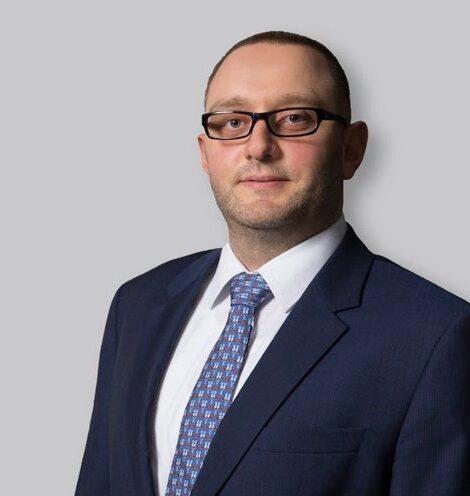Local insurers have “more skin in the game” due to the hard market for reinsurance.
The rise in risk retentions among insurers, globally, driven by higher pricing and attachment points for reinsurance, is driving Middle Eastern local insurers in the same direction.

Some business is being passed to local reinsurers, in accordance with regulatory rules, while a bigger share is also being retained by the local insurers themselves.
Many are welcoming this increase in insurance risk being retained within the Middle East region, Elie Abi Rached, Chedid Re’s CEO global operations, told GR.
“This is a good sign for the market, ceding companies are having more skin in the game,” he said.
“In some countries this is being driven by regulators, but definitely also by the boards of directors of insurance companies pushing for more retentions.
“They are retaining more premium locally in their markets, and, at the same time, it’s assuring for the reinsurers because they know that the cedants have that strong retention,” said Abi Rached (pictured).
At 1/1, Middle Eastern insurers buying reinsurance faced much the same situation as their peers in European markets.
“Definitely at 1/1 we’ve seen hardening for treaties in the market, driven by the losses that happened globally. However, specifically in our region, we were impacted by the earthquakes in Morocco and in Turkey,” Abi Rached said.
In a familiar tale, rate rises for reinsurers seeking retrocession have rippled through the market, contributing to the price increases for primary market insurers buying reinsurance.
“Retro prices increased by an average of around 25%, depending on how the programme had been hit by losses, and in turn this impacted the 1/1 treaty renewals for ceding companies accordingly,” Abi Rached said.
“However, reinsurers for our region considered each treaty for its merits, which is good. So in general, there is hardening, but not penalising everyone. Some accounts were renewed at expiring terms and others definitely were impacted by an increase in price,” he added.
Structures of some treaties have also been changing, he explained.
“The region’s reinsurers are pushing to reduce surplus lines, to maintain and even to grow quota shares in the region. They are reducing unbalanced capacity offered by the insurers and pushing for more net retention by ceding companies,” Abi Rached said.
While most regional treaty business is renewed at 1/1, direct and facultative business is placed throughout the year. Fac represents some 48% of Chedid Re’s placements by volume, across a full spectrum of risks, from property and engineering, to life, marine and energy, and political violence (PV), all of which are in demand.
Fac business is hardening similarly to treaty, he explained, while the region is abuzz with construction contracts requiring re/insurance protection, such as for the vast and impressive Saudi Vision 2030 projects.
“There is price hardening for mega risks, where you need lead terms from international capacity,” Abi Rached said.
“That is for the major infrastructure projects that are happening, such as Neom, or Red Sea development projects in the Kingdom of Saudi Arabia, especially when you have a lot of accumulation for such projects. This is driven by international market pricing,” he said.
Middle East markets remain at the top end of the protection gap. However, gross written premium (GWP) is rising, thanks in part to a weight of compulsory business – such as health and motor – that accompanies economic development.
“There are more compulsory products coming to the market, depending on the territory. The growth is there on the GWP, but the penetration ratio that we have in the region remains way below other developed markets, so we have definitely a long way to go,” Abi Rached said.
“Reinsurers are keen to develop in the region, to grow in the region, especially seeing the transition that’s happening in most countries and the potential that is available there,” he said.
GR spoke with Abi Rached at the 34th General Arab Insurance Federation (GAIF) conference held in Muscat in late February. Chedid Re has been attending GAIF events since the group’s inception, Abi Rached emphasised.
“We’re so happy to see how this conference have developed, especially now to reach a record number close to 2,200 attendees. The Organising Committee in Oman has done a fantastic job, the arrangements, the setup, everything has been perfect,” he said.
Geopolitical risk facing some Middle East and African countries in 2024 has led to increasing regional demand for some insurance products in particular – led by PV.
At a reinsurance level, as a volatile line of business, PV risk is transferred within the fac market, rather than within treaties, Abi Rached explained.
“PV pricing today in Lebanon relative to before the Gaza crisis is seven to eight times higher, maybe ten to twelve times more in the country’s south”, he said.
While political tensions are high, this has not translated into a PV claims spike, at least, not yet.
“This is fair to say. We’re finding solutions for our clients and getting the support needed to get the deals done, whether that’s for PV and across the spectrum of risks,” Abi Rached added.










No comments yet